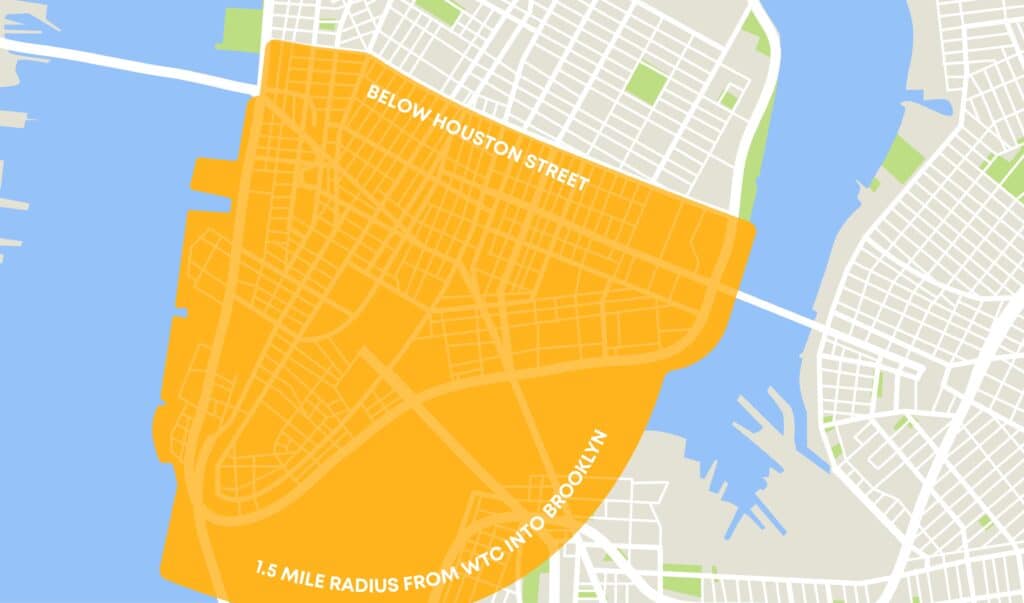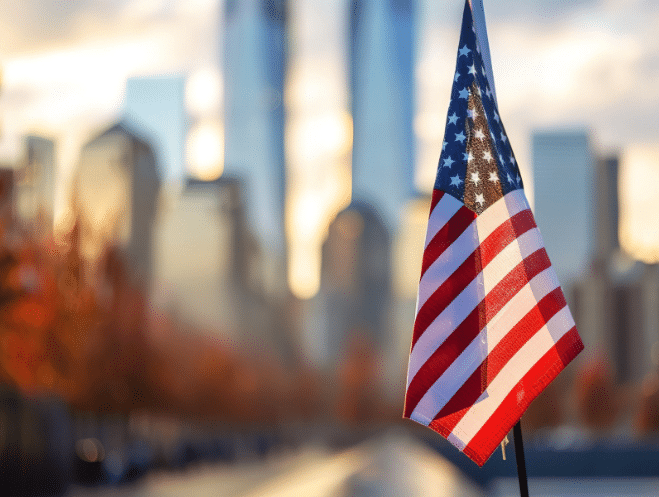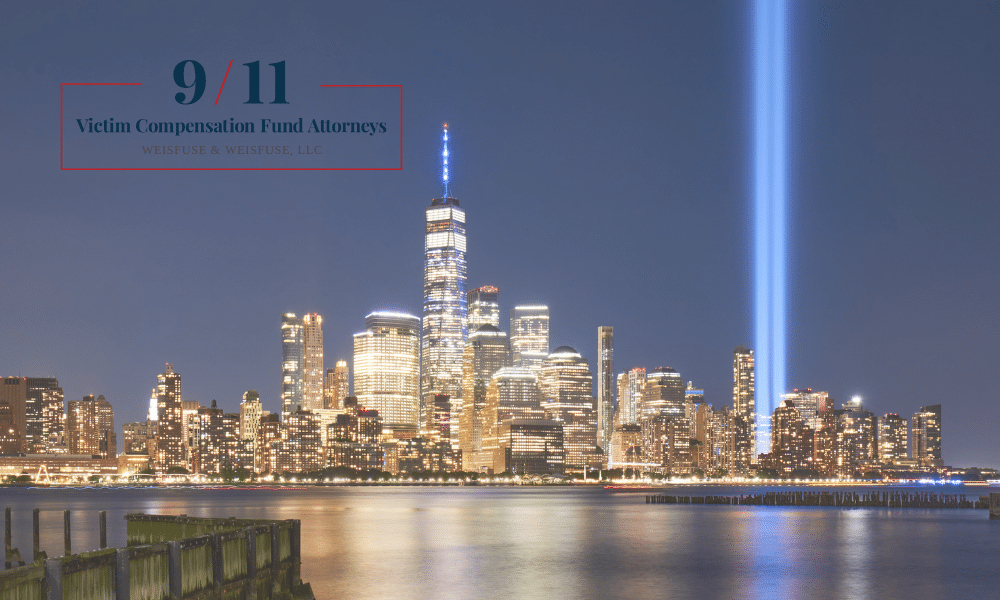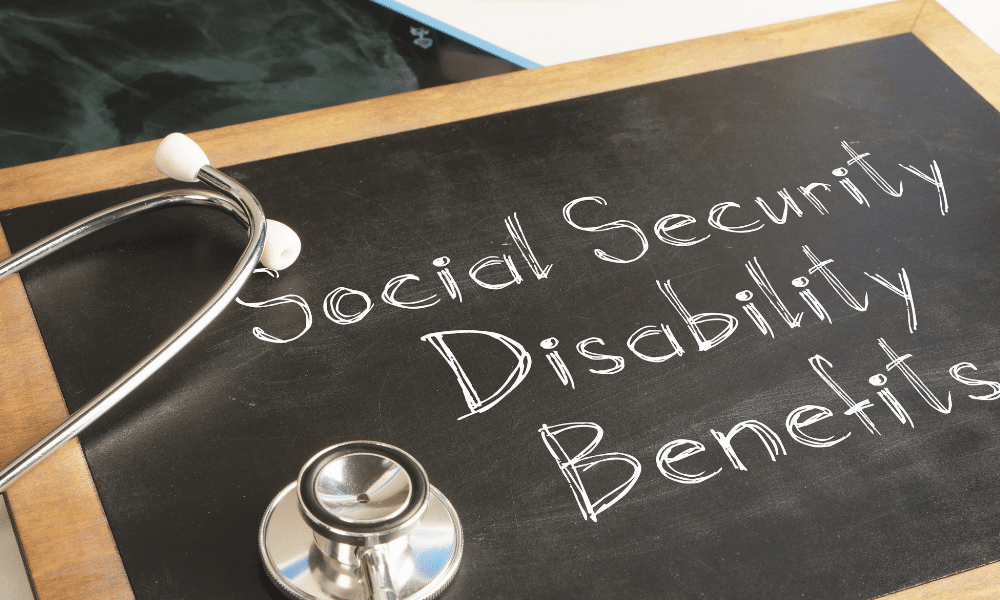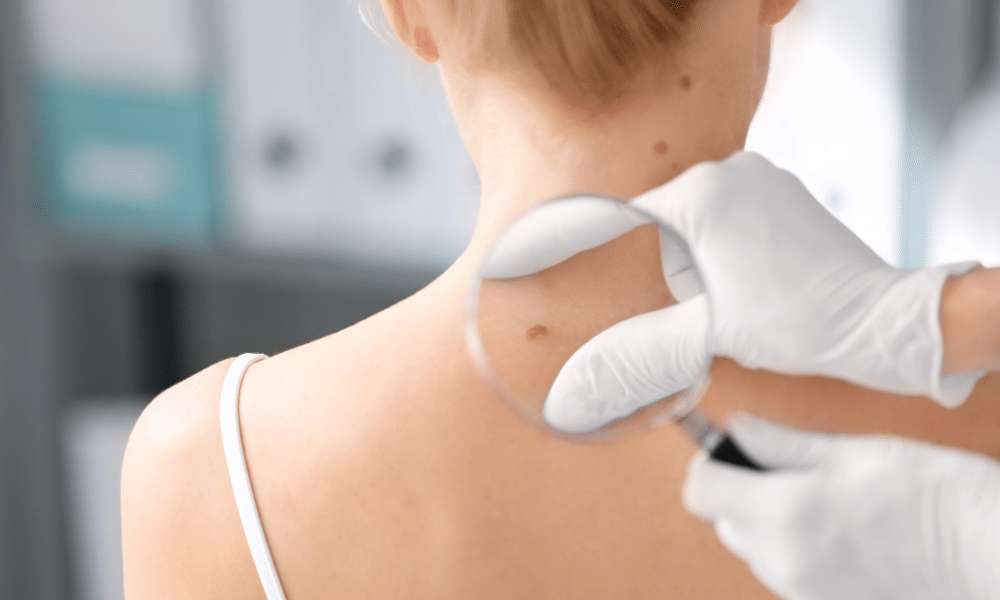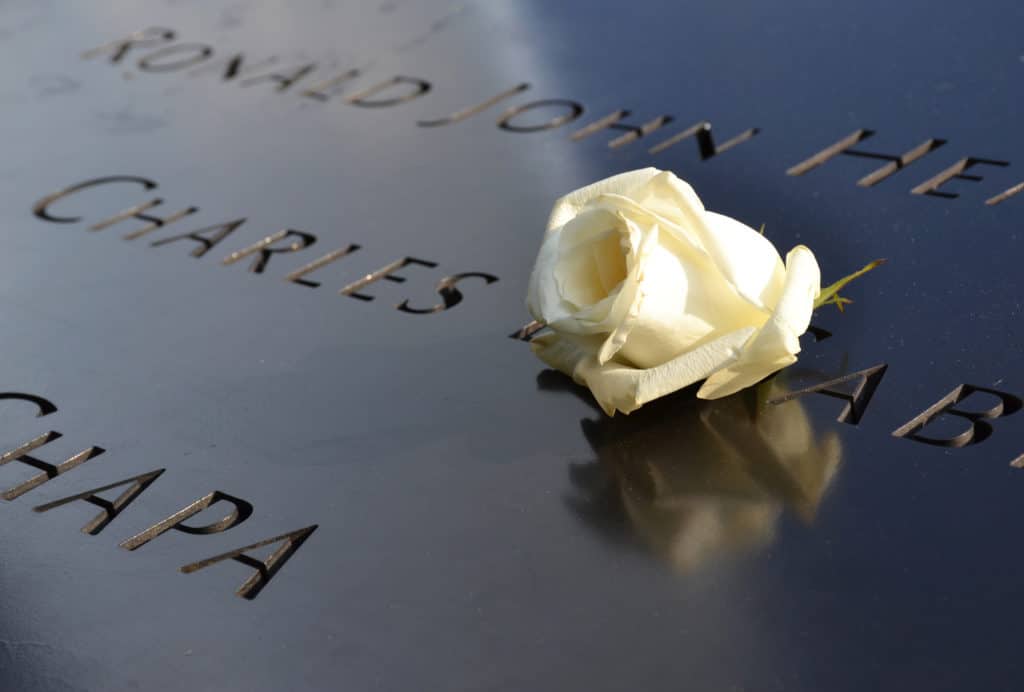
The images of those two airplanes speeding into the World Trade Towers on that bright, sunny morning on September 11, 2001, are burned into our nation’s collective memory. We all grieve for what we lost on that morning. However, those who rushed to the site in uniform—police, firefighters, medics, doctors and nurses, government workers—have been left with more than just horrifying memories. In addition to the respiratory disorders and cancers, too many of our first responders have been left with lingering psychological disorders—post-traumatic stress disorder and depression. These are as real and damaging as the physical ailments although too many times they are shamefully hidden away and not spoken about as painful and debilitating.
And it’s not just our uniformed first responders who have suffered. Survivors of the 9/11 attacks include residents in the TriBeCa neighborhood, business owners, service workers, teachers and students, and anyone whose use of their home or office was interrupted by the disaster and its aftermath. You too are entitled to compensation so that your wounds can be attended to with compassion.
At Weisfuse & Weisfuse, LLC, we invite our uniformed heroes and neighborhood survivors to schedule a free consultation so that we can guide you through the process of registering and filing a claim to fully participate in the compensatory programs to which you are entitled. You and your family deserve the services and compassion that we as a nation promised.
Emotional Effects of the 9/11 Attack
Researchers have found that recovery workers, survivors, and witnesses to 9/11 have evidenced increased rates of mental health problems such as depression and post-traumatic stress disorders. Many recovers, but there remains a sizable number of folks who are still haunted by the events of that day, in a way that is debilitating. 70,000 people who were impacted by 9/11 have become part of a voluntary registry so that long-term health issues can be identified and tracked. The registry was formed in 2003-2004, and to date about 8-10% of its members continue to suffer from symptoms associated with PTSD. However, those registrants closer to Ground Zero, especially rescue workers, are more likely to experience continuing distress: 17-18% are exhibiting PTSD. Among those in the registry, they are twice as likely to experience depression or PSTD.
The symptoms of PTSD are varied and can include:
- Nightmares
- Easily startled
- Anxiety
- Reexperiencing the trauma
- Flashbacks
- Emotional numbness
9/11-Related Post-Traumatic Stress Disorder
Those people who worked in the World Trade Center and surrounding buildings that were immediately affected by the attack and those who lost close family members are the most likely to experience PTSD. Among those survivors, most recuperated from the emotional shock within six months of the event. However, at least one-third continue to experience the symptoms of PTSD.
This group continues to suffer in many instances because of other risk factors that deplete resiliency and interfere with internal healing processes. Anyone who had experienced trauma before or after 9/11, went through a period of unemployment, experienced housing insecurity, or inadequate income is more likely to have recurring symptoms of PTSD. And for those suffering so many years later, it’s usually from a combination of physical and mental health issues. Depression, in particular, magnifies these physical and mental health symptoms.
PTSD and Other Mental Health Issues Related to 9/11
Approximately 400,000 people are eligible to register with the World Trade Center Health Registry to gain access to no-cost medical monitoring and treatment for certified World Trade Center-related health conditions. These include people who were directly affected by the 9/11 attacks in New York, the Pentagon, and in Shanksville, Pennsylvania.
Certified World Trade Center-related health conditions include acute and traumatic injuries, cancers, musculoskeletal disorders, airway and digestive disorders, and of course, mental health disorders.
Mental health disorders might include a wide range of conditions that affect your mood, thinking, and behaviors, and impact your ability to connect with other people, sustain a job, and maintain a stable homelife.
- Acute stress disorder
- Adjustment disorder
- Anxiety disorders
- Depression
- Dysthymic disorder
- Generalized anxiety disorder
- Major depressive disorder
- Panic disorder
- Post-traumatic stress disorder (PTSD)
- Substance use disorder
Seeking Help for your 9/11-Related PTSD
A first step to seeking help is to determine your eligibility to register with the World Trade Center Health Registry and then file a claim for compensation from the World Trade Victim Fund.
Eligibility requires proof that you were south of Canal Street for any period between the dates of September 11, 2001, and May 30, 2002, although you need not be present in the area on the day of the attacks, September 11th. Exceptions to this location rule exist: morgue workers who handled the remains from Ground Zero, workers at the Staten Island landfills where the toxic waste was dumped, and workers around the clean-off locations for fire trucks and barges are also eligible for to register because of their proximity to toxic materials and the gruesome artifacts of the attacks.
Once eligible, then you must register with the World Trade Center Health Registry to preserve your right to treatment and compensation. The purpose of this registry is to provide no-cost health monitoring and treatment.
Before you register, it’s a good time to schedule a free consultation with the experienced and compassionate attorneys at Weisfuse & Weisfuse, LLC. so that you fully understand eligibility requirements and the steps needed to preserve your rights and to file a claim for compensation from the 9/11 Victim Compensation Fund.
Treatment for your 9/11-Related PTSD
Some treatment options are available through the World Trade Center Health Registry whereas compensation is available through the September 11th Victim Compensation Fund (which includes the original fund along with the “Never Forget the Heroes, James Zadroga, Ray Pfeifer, and Luis Alvarez Permanent Authorization of the September 11th Victim Compensation Fund Act”). The deadline for filing eligible claims has been extended to October 1, 2090.
Legal Assistance for your 9/11-Related PTSD
The experienced legal team at Weisfuse & Weisfuse, LLC has helped many 9/11 illness victims become eligible for compensation. Our attorneys leave no stone unturned in making the strongest possible case so that survivors and responders receive the maximum compensation to which they are entitled. And this includes medical treatment and compensation for mental health issues caused by 9/11.
Our attorneys distinguish themselves by providing compassionate, personal attention to each claim. We always submit optional impact statements to the Victim Compensation Fund which are supported by medical proof of the pain and suffering for each client to maximize the value of each claim. Call Weisfuse & Weisfuse, LLC at 212-983-3000 for a free and confidential consultation.
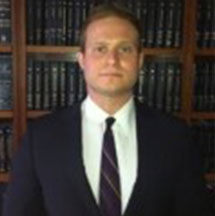
About Jason Weisfuse –
9/11 Victim Compensation Fund Attorney
About Jason Weisfuse –
9/11 Victim Compensation Fund Attorney
Jason E. Weisfuse is a seasoned 9/11 cancer attorney and managing partner at Weisfuse & Weisfuse, LLC, a New York City-based law firm dedicated to representing individuals affected by the September 11th attacks. Since the establishment of the September 11th Victim Compensation Fund (VCF), Jason has been instrumental in assisting first responders, survivors, and families in securing the compensation and medical benefits they deserve.
With a Juris Doctor from New York Law School (2009), Jason brings extensive experience regarding the 9/11 Victim Compensation Fund to his practice. His deep understanding of the VCF and the World Trade Center Health Program (WTCHP) has enabled him to navigate complex claims processes effectively, resulting in substantial awards for his clients.
Jason’s commitment to the victims in the 9/11 community is evident through his active involvement in professional organizations such as the New York State Trial Lawyers Association and the American Association for Justice. He has also contributed to legal discourse with publications in the New York Law Journal, reflecting his dedication to legal excellence and advocacy.
At Weisfuse & Weisfuse, LLC, Jason continues to provide compassionate and knowledgeable representation, ensuring that those affected by 9/11 receive the support and compensation they are entitled to.


